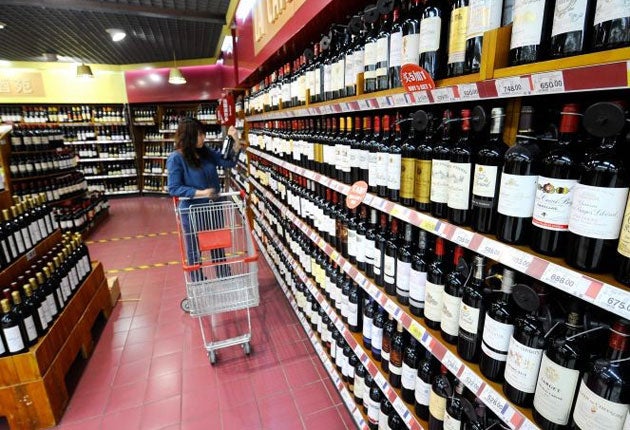Mary Dejevsky: The hypermarket may have had its day
Notebook

At the bottom of the hill near where we lived in Paris was a small chain supermarket that offered just the right selection of everything. You could drop in on a Friday evening for an excellent bottle of Gewürztraminer, or you could do the whole weekly shop (leave it in the trolley and have it delivered to your door, in a smart cardboard box, a couple of hours later, for the price of the 10 franc deposit). It did not seem markedly more expensive than the mini-supermarkets we now have in Britain, and it succeeded in that very French thing of being old-fashioned and ultra-modern at the same time.
There was a time when these smaller stores felt threatened by the gigantic hypermarkets proliferating on city the ring-roads. If a recent decision by the Carrefour chain is a sign of the times, however, the trend to ever bigger shopping spaces could be juddering to a halt. Carrefour claims to have invented the hypermarket, and it exported the concept all over the world. But it is now starting to doubt whether size is everything. Contrary to forecasts, customers are coming less frequently and, in aggregate – buying less.
Now you might say that this stands to reason. Given how long it takes to get there, the price of petrol, the jungle that is the car park and the endless acreage of the store, it makes sense to write off a day, buy everything you want in one go, and postpone the next visit as long as possible. After all, it is not every week that you want to buy, say, milk, eggs, fruit juice and a new television, bathroom tiles and a washing machine all at once.
There is also the excessive choice conundrum: the known paradox that too much choice baffles the customer into indecision, the consequence being that we end up buying nothing. There is a limit to how many distinctions of jam or baked baked beans an overstimulated brain can absorb. Carrefour is now reducing the number of its stores, their floorspace and their ranges, as well as signposting what it offers more clearly. Other chains, including Casino, are doing something similar. Which should be good news for the environment, for town-centres, for small shop-keepers and for hard-pressed consumers.
But could it also reflect a bigger shift – away from consumption for its own sake? The hypermarket flourished in the late 20th-Century, patronised by a generation whose childhood was coloured by their parents' memories of deprivation. This was a time when choice, the bigger the better, was still a welcome novelty. You don't have to regard the times we live in as stamped by a new sense of ascetism to feel that, just perhaps, more than 57 varieties of anything is quite enough.
The wrong sort of example for China
Wellington College has announced with great fanfare that it has laid the foundation stone for its first international off-shoot in China. The well-regarded English public school has pioneered the teaching of Chinese in Britain and the new school, in the northern coastal city of Tianjin, will cater to European expatriates and Chinese as well as facilitating language-training and exchanges. Which all sounds admirably cosmopolitan and far-sighted. After all, if China is the rising power, then the better we understand them and they understand us, the more successfully, perhaps, we may get along.
So why do I have misgivings? Because replicating a popular English public school in China is not just about improving mutual understanding, although this may be the theory. Nor will it just be a money-making exercise, though this may be a major motivation on the British side. For rich Chinese – the only ones who will be able to afford the fees – this is about buying into a stereotypical English aristocratic lifestyle as a springboard into China's national elite. I would have thought that the last thing any country needs, still less one already as socially and economically stratified as China, is an education system as divisive and class-ridden as Britain's.
Not that Wellington College is alone. Other public schools and universities are in the process of setting up branches and campuses in China. And the same strictures apply.
Team GB? I'll be cheering on Great Britain, thanks
It looks as though everyone will be present and correct in time for the opening ceremony for the Commonwealth Games. But in all the speculation about who would or would not be going to India, I found the repeated references to Team England, Team Scotland and the rest self-consciously silly. I caught one BBC newsreader stumbling over the combination and eventually plumping for good old-fashioned Scotland. So far as I can divine, this Team business began in a big way before the Beijing Olympics, and really took off when Team GB as we learnt to call them, did so unexpectedly well. Can it really be that the name Team GB is more effective at fostering team spirit and drumming up national support than plain Great Britain – or might it have something to do with commercial branding? Alas, I fear that it's all gone too far now for our athletes to compete as simple Great Britain on their home territory in 2012.

Join our commenting forum
Join thought-provoking conversations, follow other Independent readers and see their replies